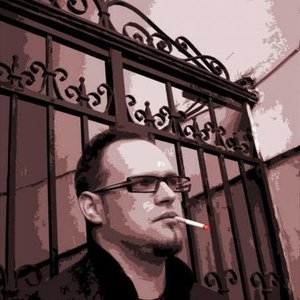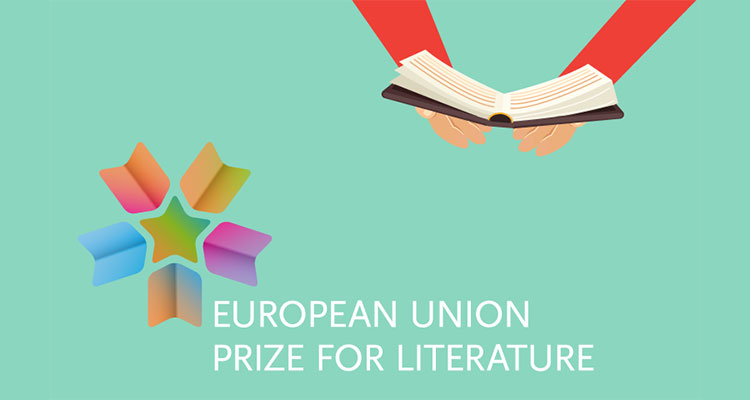Serbian author Darko Tusevljakovic is among the 12 winners of 2017 European Prize for Literature. The Prize, organised with support of the European Commission, went to his novel The Chasm published by Arhipelag.
 The Chasm is a story about the disintegration of a family. In the first of the two parts of the novel, an estranged husband suffering from post-traumatic stress disorder as a consequence of his war experience, strives to re-establish the relationship with his estranged wife during a holiday in Greece, succeeding only in deepening the discord between the two of them. The second part takes place in Serbia and focuses upon the main reason for the marital discord of the couple from the first part – the plight of their son, a student who tries to find his place in society, as well as his identity, through a series of dramatic events with a surprising and powerful twist at the end.
The Chasm is a story about the disintegration of a family. In the first of the two parts of the novel, an estranged husband suffering from post-traumatic stress disorder as a consequence of his war experience, strives to re-establish the relationship with his estranged wife during a holiday in Greece, succeeding only in deepening the discord between the two of them. The second part takes place in Serbia and focuses upon the main reason for the marital discord of the couple from the first part – the plight of their son, a student who tries to find his place in society, as well as his identity, through a series of dramatic events with a surprising and powerful twist at the end.
Darko Tusevljakovic was born in Zenica, Bosnia and Herzegovina, in 1978. Since 2002, his fiction has been published in literary magazines and anthologies in Serbia and elsewhere in the Balkans. In 2004, he was awarded the Lazar Komarcic Award for short fiction. Tusevljakovic is the author of two novels and a collection of short stories. His books have been shortlisted for some of the most important Serbian national awards for fiction. In 2016, his novel Jaz (The Chasm, the Serbian winner of the European Prize for Literature) was shortlisted for the NIN Award for the best novel of the year, the most prestigious literary award in Serbia. He lives and works in Belgrade.
Zoran Paunovic, the Vice-President of the Serbian Pen Centre and a member of the European Prize for Literature jury, told the EU Delegation web-site that the novel The Chasm “must be among the best Serbian works of fiction in 2016. It was shortlisted for the NIN Award so the news about it receiving the Prize was no coincidence and did not come as a big surprise.”
Paunovic said that the jury recognised “above all the author’s capacity to fuse the reality and phantasmagoria, to write a story that deals with the last two decades of our turbulent history and at the same time stay on course of what is commonly accepted as quality literature: to touch upon numerous universal meanings, such as the search for one’s own identity in times of complete identity annihilation.“
The importance of this award is tremendous, says Paunovic, as it represents “a tangible possibility for the awarded book to move beyond the borders of our country, offers translation into English, increases visibility in the wider region and offers a chance for foreign publishers to notice and publish it in different cultural contexts. A proof for this may be sought in other laureates of the Prize – Jelena Lengold and Ugljesa Sejtinac – who, upon receiving the award, both became acclaimed writers in Europe,” says Paunovic.
The European Union Prize for Literature (EUPL) is an award which recognises outstanding new and emerging literary talents across Europe, and highlights the wealth of contemporary European literature, while drawing attention to the continent’s unique cultural and linguistic heritage.
The EUPL is organised by a Consortium comprising the European and International Booksellers Federation (EIBF), the European Writers’ Council (EWC) and the Federation of European Publishers (FEP), with the support of the European Commission. It is accessible to all the countries participating in Creative Europe, the EU funding programme for the cultural and creative sectors for 2014-2020.
Every year, expert national juries are set up in one third of the participating countries and appointed to nominate the winning authors according to specific criteria and following a selection procedure. Once selected, each of the twelve winning authors not only receives a cash prize of € 5 000, but more importantly, benefits from increased international visibility and cross-border promotion, starting at the Awards Ceremony in Brussels and continuing at Europe’s major book fairs.
Commissioner Tibor Navracsics, high-level representatives of the European Parliament and of the Maltese Council Presidency of the EU will present the twelve winning authors with their awards during a public ceremony on 23 May at Concert Noble, in Brussels.
Apart from Tusevljakovi, another 11 authors were named laureataes of the 2017 European Prize for Literature: Rudi Erebara (Albania), Ina Vultchanova (Bulgaria), Bianca Bellová (Czech Republic), Kallia Papadaki (Greece), Halldóra K. Thoroddsen (Iceland), Osvalds Zebris (Latvia), Walid Nabhan (Malta), Aleksandar Bečanović (Montenegro), Jamal Ouariachi (The Netherlands), Sine Ergün (Turkey) and Sunjeev Sahota (United Kingdom).
Background
The European Union Prize for Literature is funded by the Creative Europe programme, which is designed to foster intercultural dialogue in Europe and to strengthen the competitiveness of its cultural and creative sectors as well as
encourage them to operate across borders. The programme not only provides support to over 250 000 artists, cultural professionals and their works in gaining visibility transnationally, but also contributes to hundreds of European cultural cooperation projects, platforms and networks. Creative Europe has a total budget of €1.46 billion over its 7-year funding period (2014-2020), which also includes a special support scheme for literary translation, aimed at publishing houses wishing to translate works of fiction in all its forms from one European language into another.
The Creative Europe programme, in its first three years (2014-2016), has helped finance the translations of about 1 400 books, from and into more than 30 European languages, including the works of as many as 58 previous EUPL winners, some of which are being translated for the first time.
Generating an annual turnover of € 22-24 billion in the EU and European Economic Area alone, the European book sector is an important contributor to the EU’s economy. In 2015, a total of approximately 575 000 new titles were published by European publishers – and the entire book value chain, including authors, booksellers, publishers, printers, designers and others, is estimated to employ more than half a million people. With 9 million available titles in the 24 official languages of the EU and numerous other minority languages, the multi-faceted European book sector significantly adds to Europe’s cultural and linguistic diversity.




